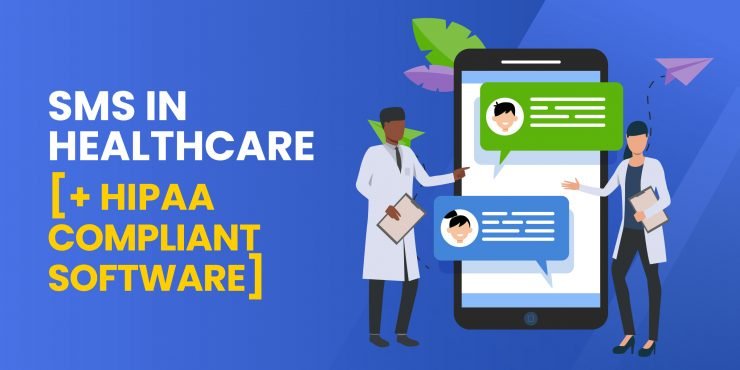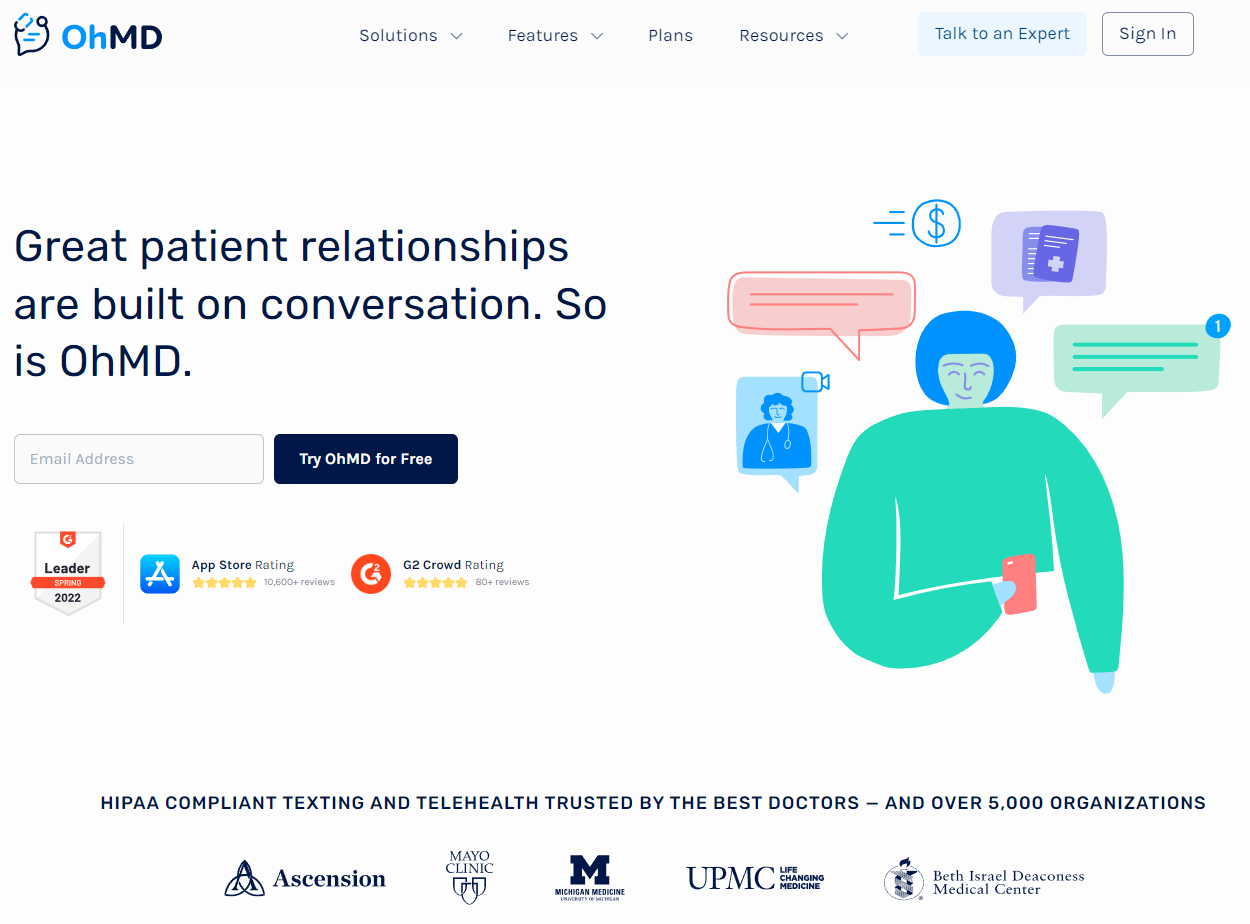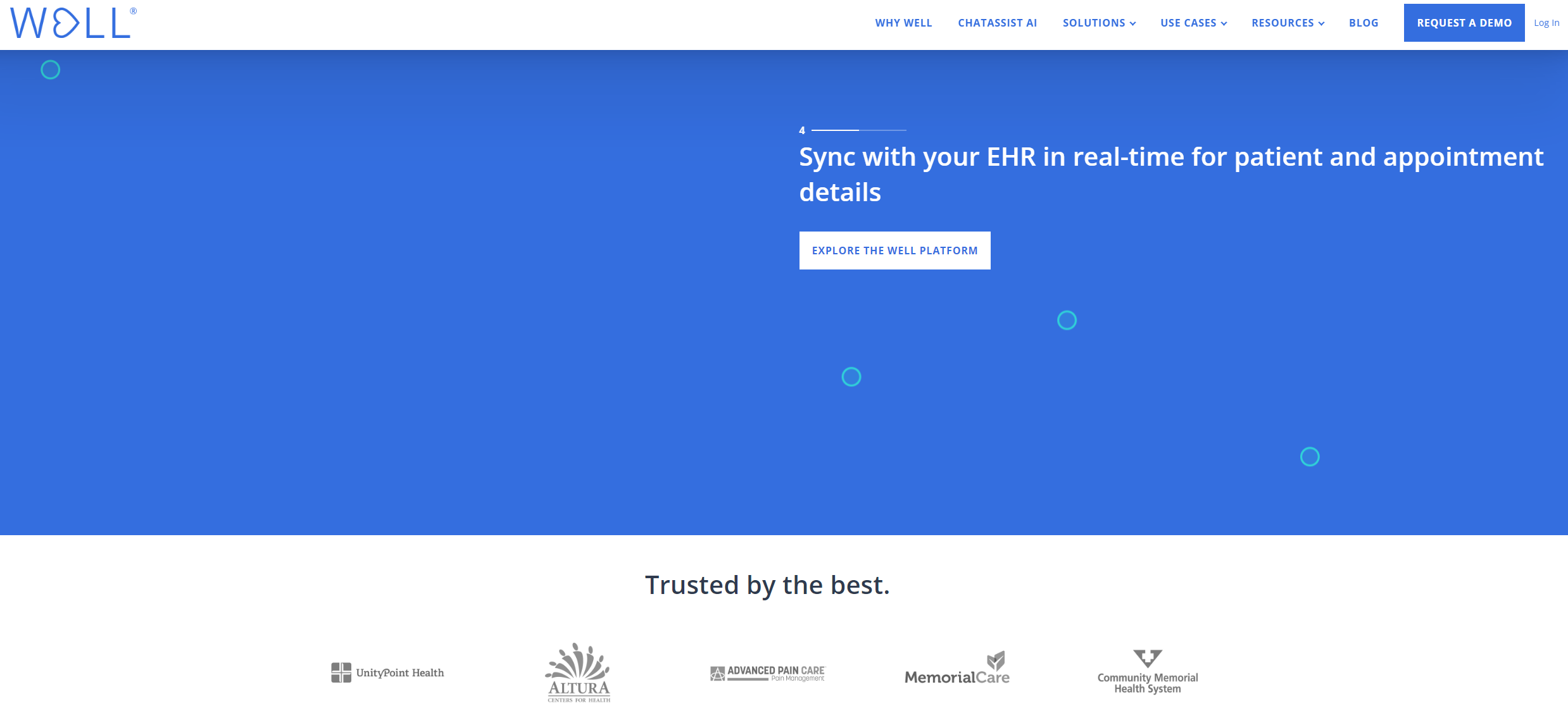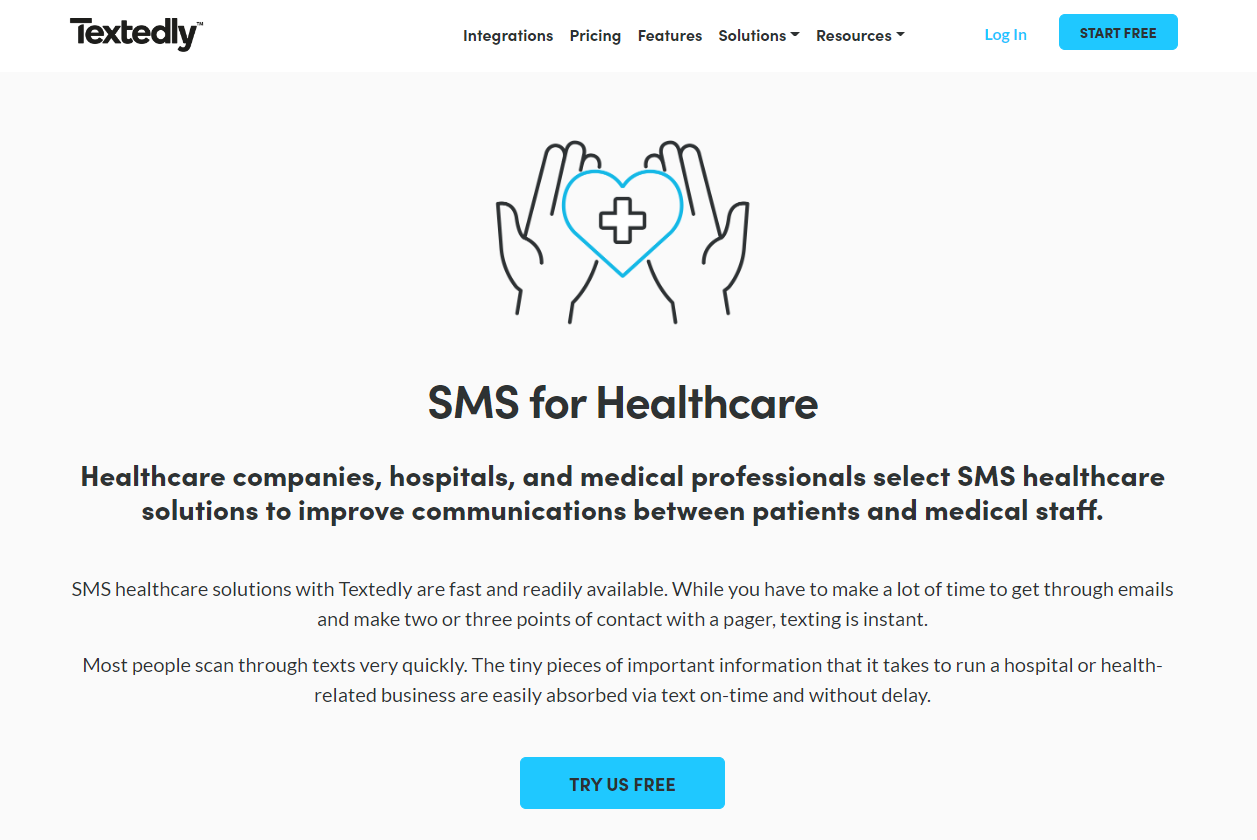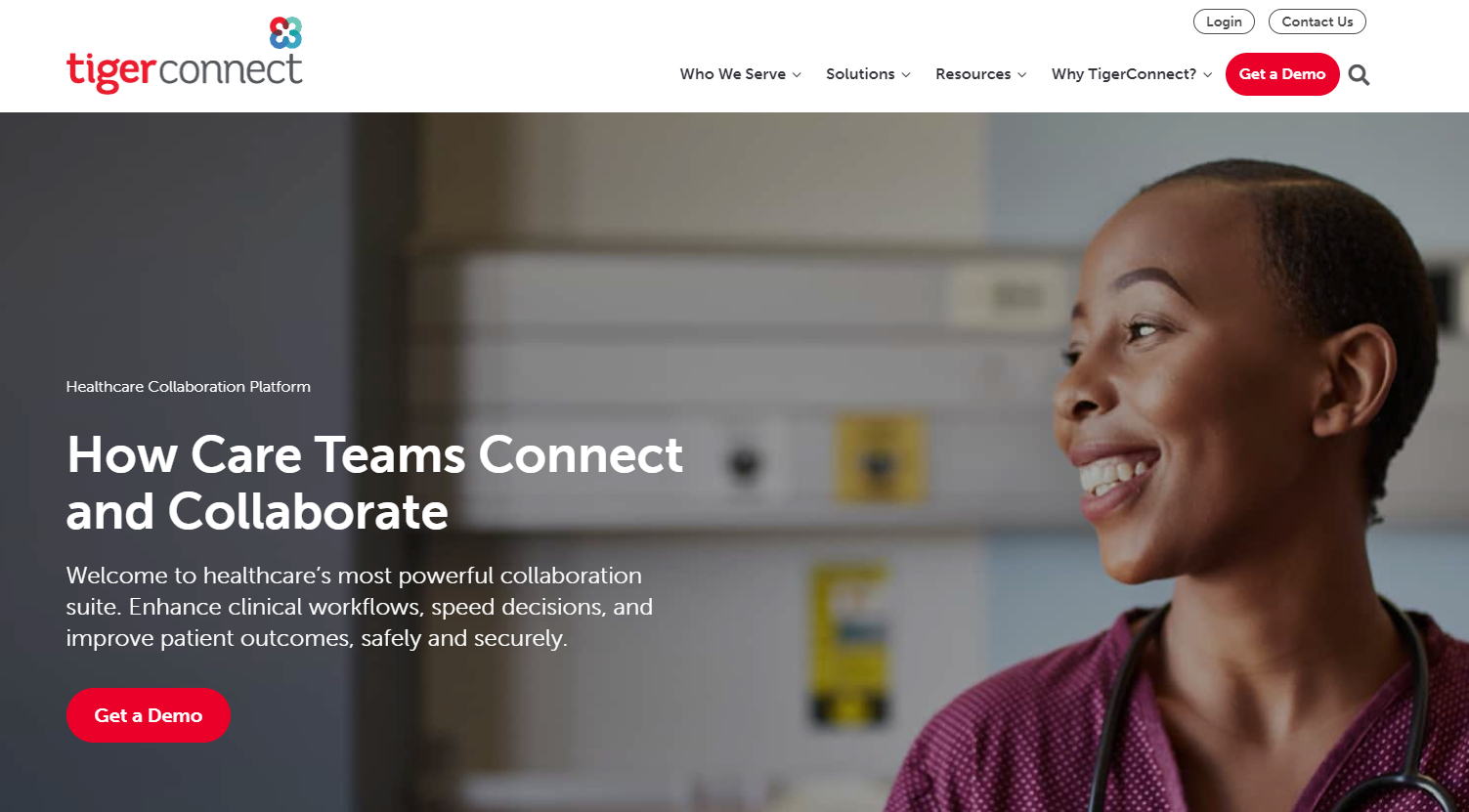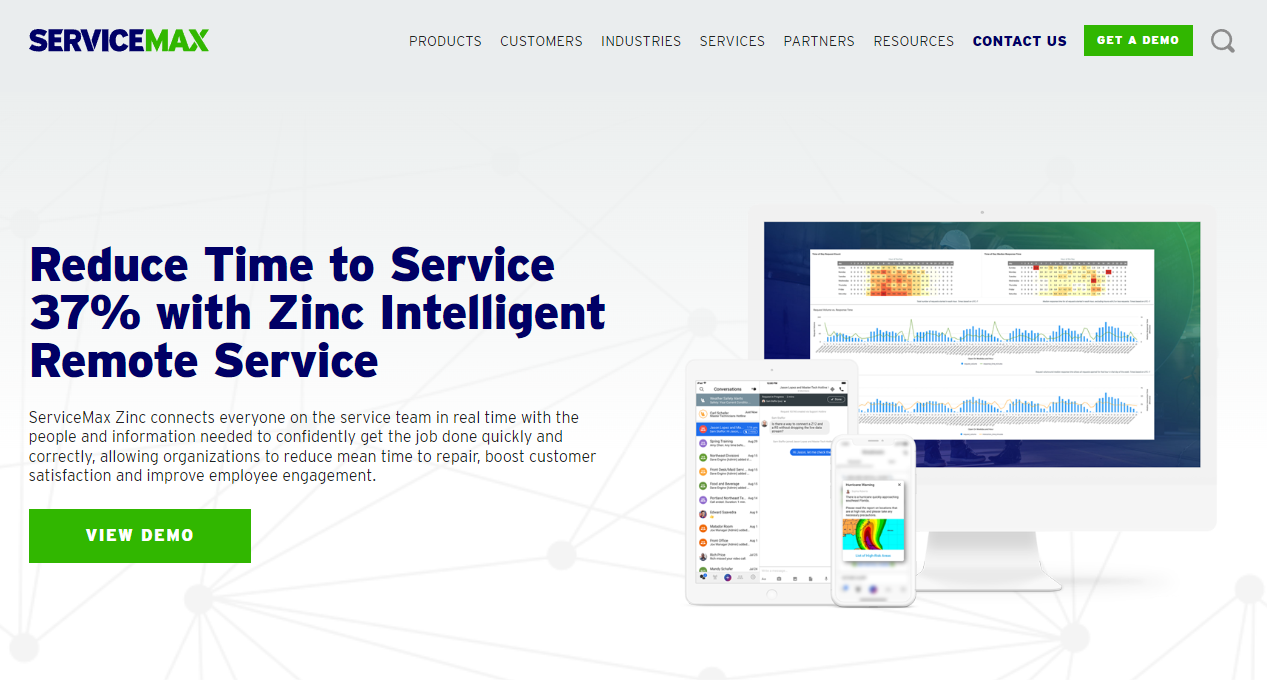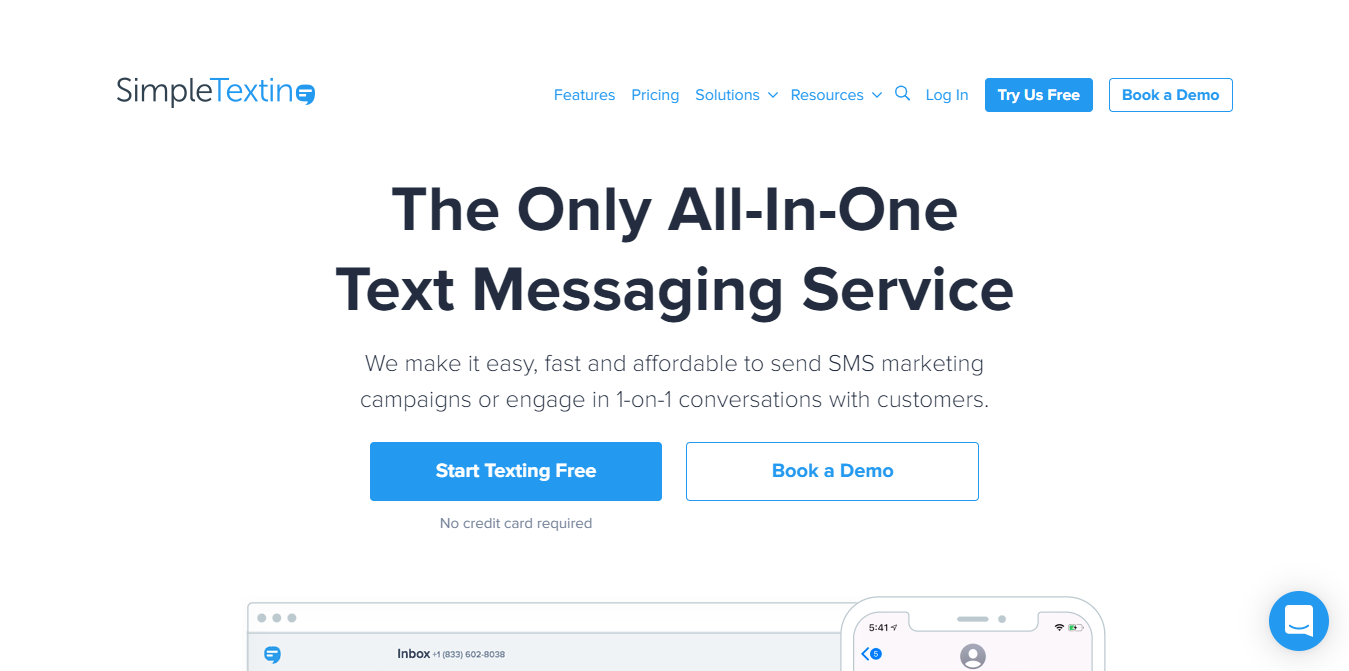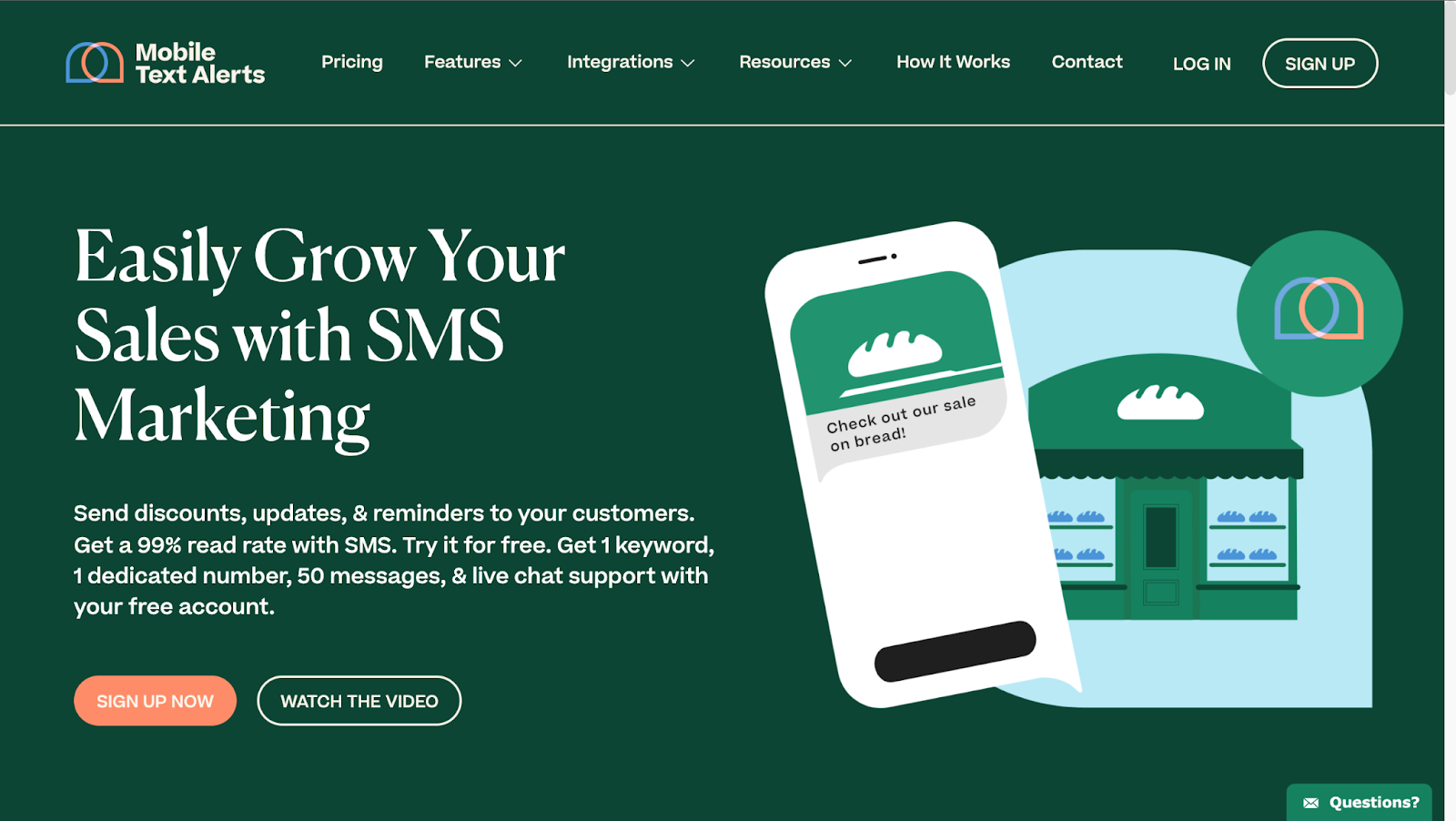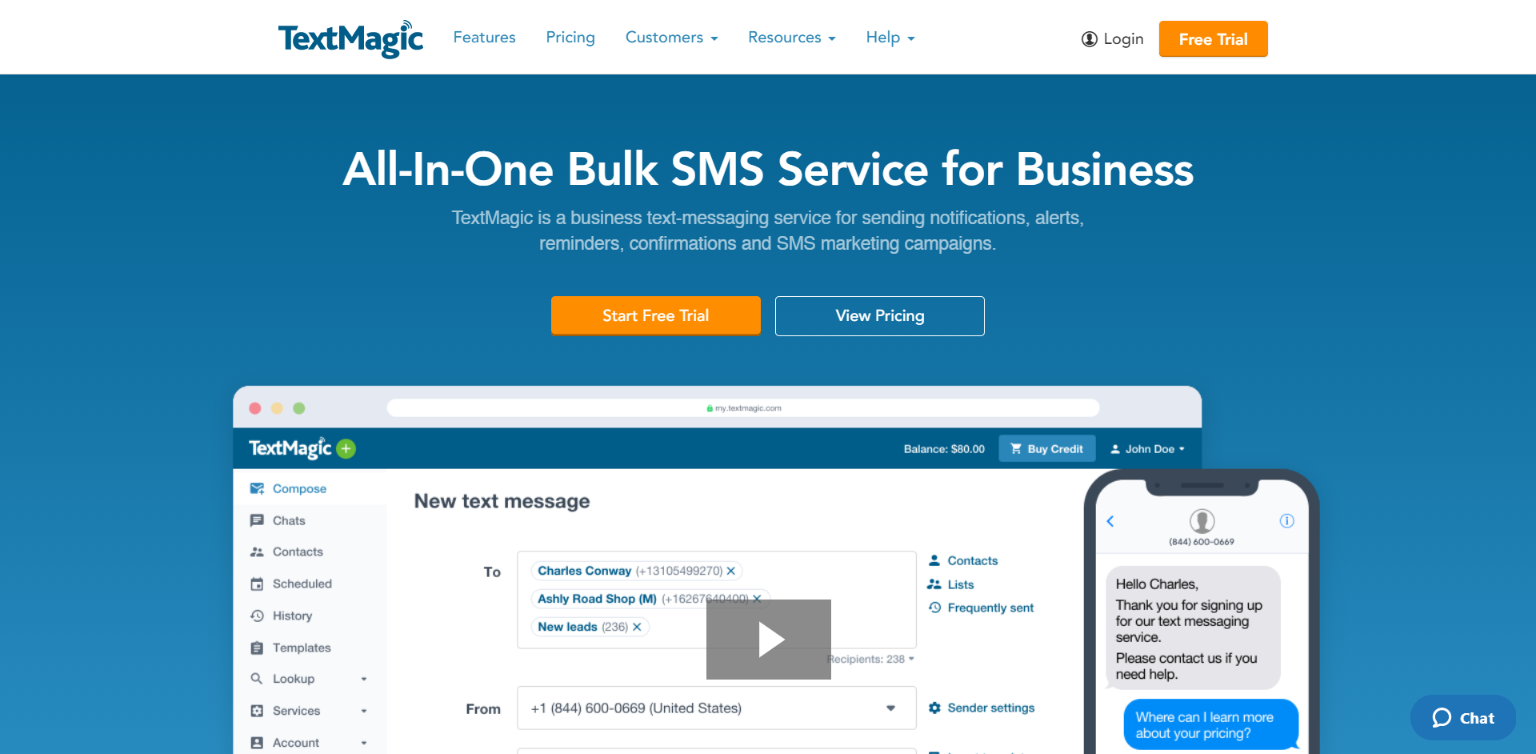Telehealth services have nearly become the standard in today’s medical field, across just about all specialties.
With healthcare being offered online, it makes sense that other correspondence between you and your doctor would take place online as well.
But when you get a text from your doctor for the first time, it can seem kind of… weird, to put it bluntly.
How does medical texting work? Let’s take a look at the behind-the-scenes of this relatively new form of communication in healthcare and see what apps could come in handy for medical practices everywhere.
Best for Small Businesses
Best for Medium to Enterprise
Table of Contents
- Texting in Healthcare
- What Is HIPAA?
- Text Messaging and HIPAA
- Medical SMS Benefits
- Text Messaging in Healthcare Risks
- How to Use SMS in Healthcare
- What to Consider When Texting Patients
- Best HIPAA-Compliant Text Messaging Software
- 1. ohMD
- 2. WELL
- 3. Textedly
- 4. TigerConnect
- 5. Zinc
- More SMS Software for Medical & Healthcare (Non-HIPAA Compliant)
- 6. SimpleTexting
- 7. Mobile Text Alerts
- 8. TextMagic
- Other Uses for SMS Marketing
- Frequently Asked Questions
We offer this website completely free to our visitors. To help pay the bills, we’ll often (but not always) set up affiliate relationships with the top providers after selecting our favorites. However, we do our best not to let this impact our choices. There are plenty of high-paying companies we’ve turned down because we didn’t like their product.
An added benefit of our relationships is that we always try to negotiate exclusive discounts for our visitors.
Texting in Healthcare
Texting in healthcare is fairly new, so it makes sense that you may have a few questions about how it all works and, importantly, how secure it is.
Let’s look at what you need to take into consideration when it comes to SMS in healthcare.
What Is HIPAA?
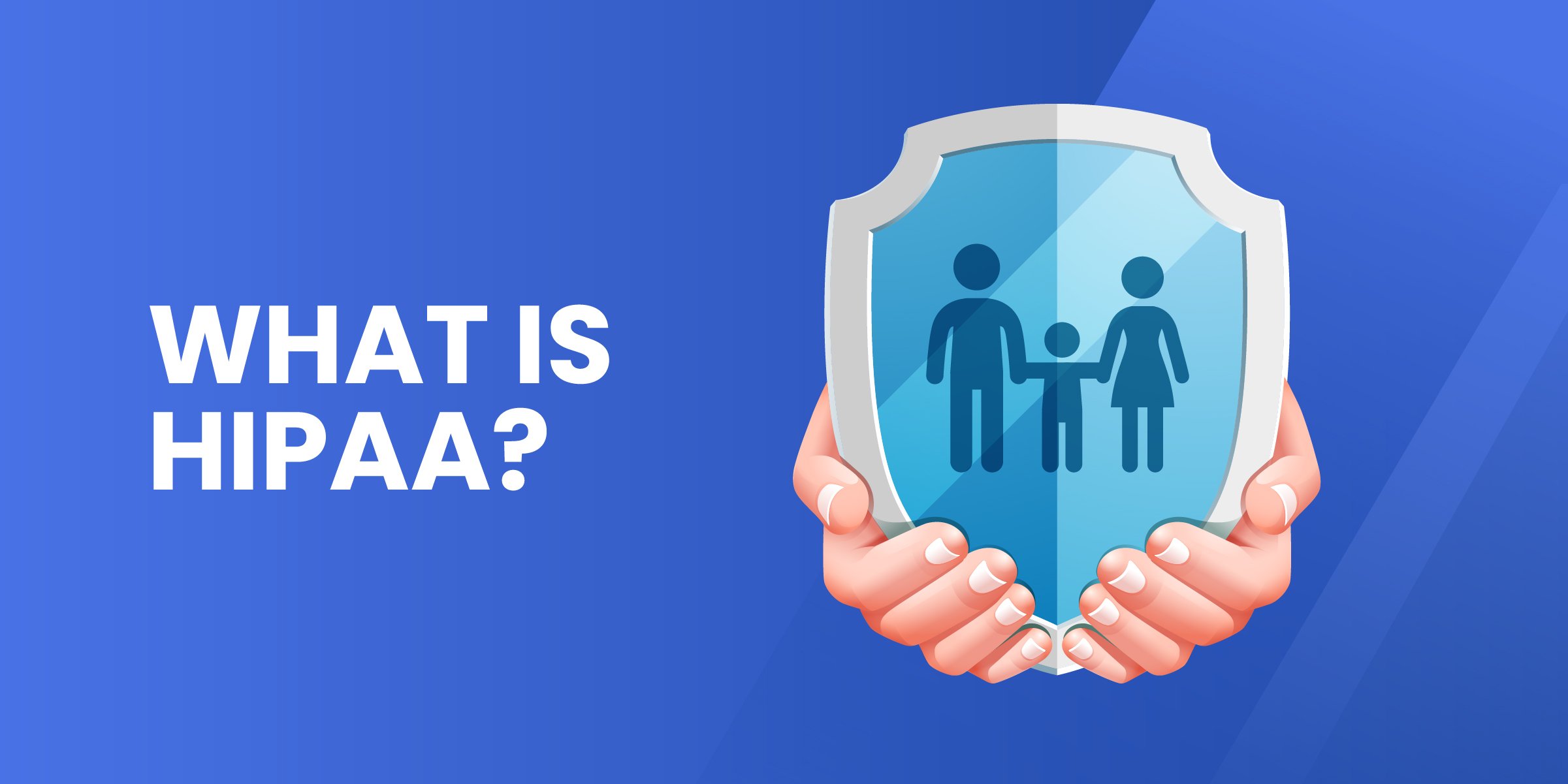

HIPAA, short for Health Insurance Portability and Accountability Act of 1996, is a law that created a national standard that protects the privacy of patients’ sensitive health information from being disclosed to other parties without their knowledge or consent.
Essentially, it means that health insurance companies and healthcare providers cannot disclose your health data to anyone without your knowledge and consent.
This law also ensures the security of electronic records.
Text Messaging and HIPAA
Millions of text messages are sent and received each day without a second thought. Unfortunately, regular text messaging doesn’t include any sort of encryption to protect the information sent in the messages.
It’s easy to see where this lack of security could easily lead to rampant HIPAA violations since medical SMS messages are likely to carry important personal health data.
The good news is, HIPAA does not prohibit the use of text messaging in medical care, but it does have specific requirements that a text messaging platform must meet to be used in healthcare settings.
Luckily, there are text-messaging platforms that allow healthcare professionals to communicate with each other and with patients in a HIPAA-compliant way.
Medical SMS Benefits
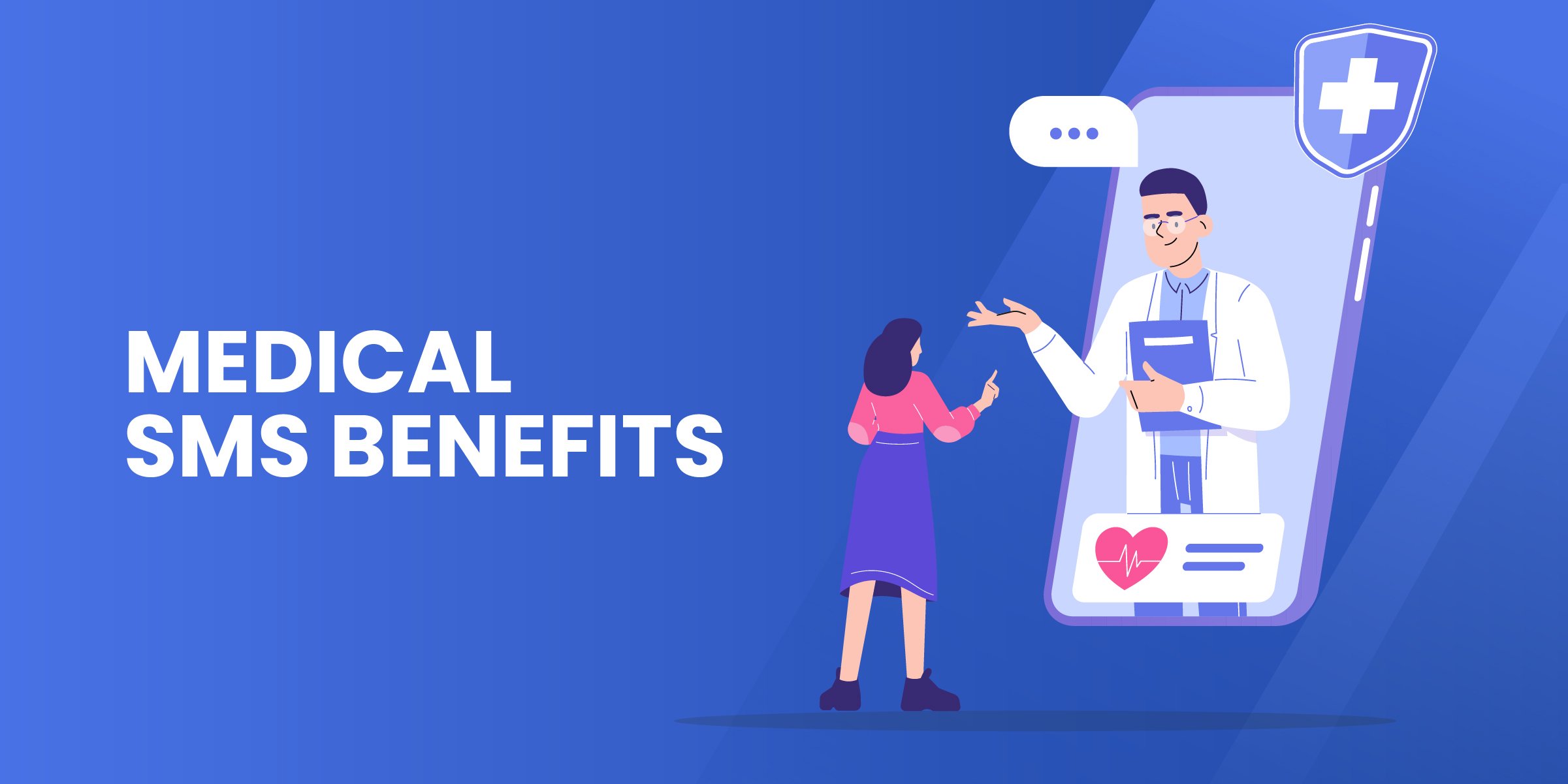

There are many benefits to using SMS messaging in the medical field. Here are a few:
- Ease of use- most people in the U.S. have a mobile phone and sending them a text is easy for both parties, regardless of technological ability.
- You can use it for both communications between healthcare professionals and with patients
- With the option of having patients respond if they need to cancel or reschedule, no-shows are less likely
- Reminders for preventative care- by encouraging patients to come in for checkups, they can prevent possible health complications down the road.
- Scheduling made easier- sending SMS reminders to staff can make things run more efficiently
- Lower costs
- Shorter waiting times
Text Messaging in Healthcare Risks
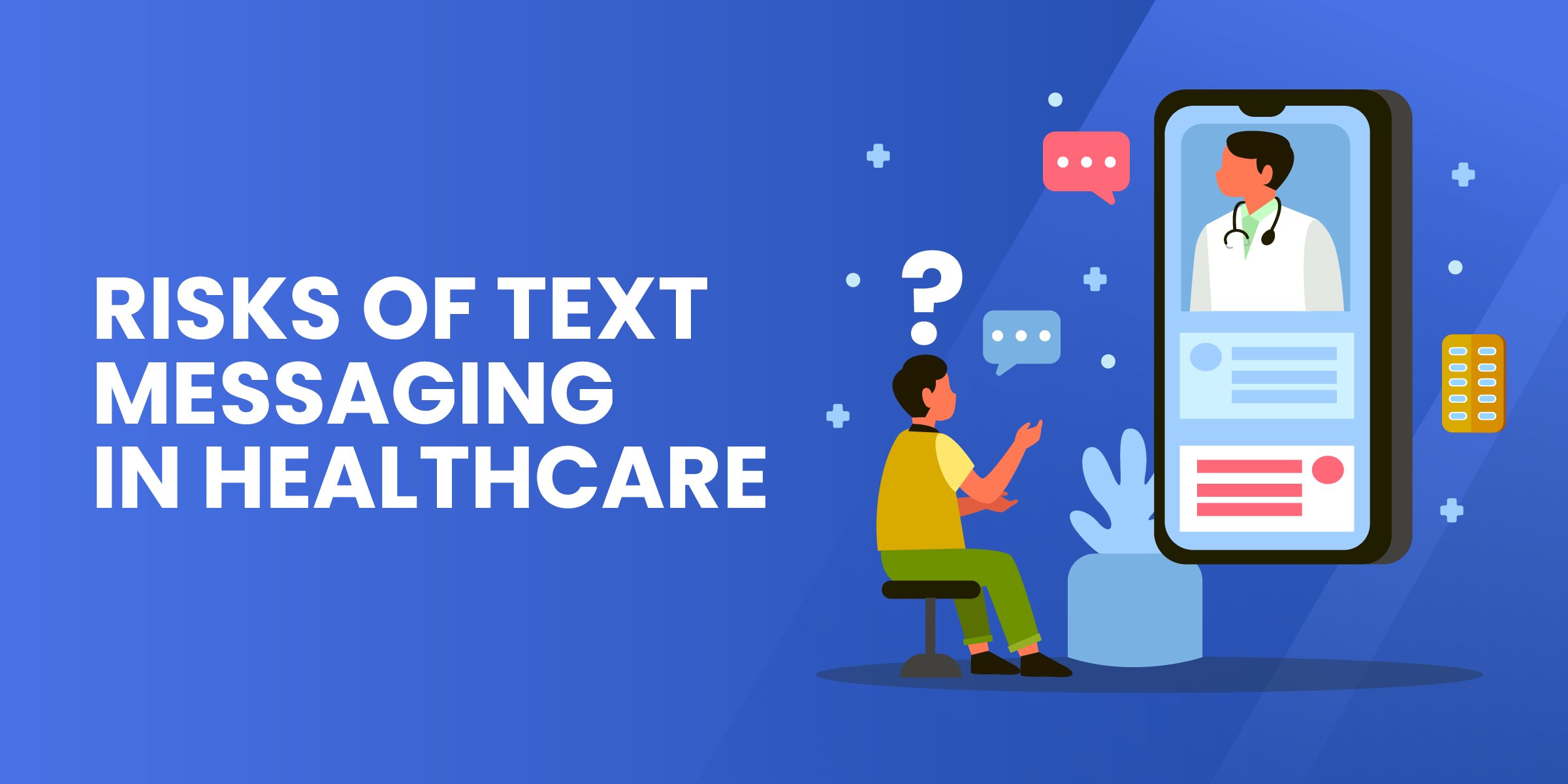

With all the positives of text messaging in healthcare, it’s important to also take risks into consideration.
Some of the significant risks that you take when utilizing SMS in healthcare include:
- Security breaches- if someone is able to hack into your SMS service for healthcare, protected health information (PHI) is at risk of being stolen.
- HIPAA violations- if someone is able to hack into your medical SMS system, you would be violating HIPAA, which could lead to a serious lawsuit.
- Reputation at risk- if your SMS system fails in some way, that could ruin patient trust.
- Higher IT costs- maintaining secure data becomes higher stakes in medical SMS, meaning you may need to pay some IT admin professionals for work protecting that important data.
Luckily, many of these risks can be mitigated when you use the proper medical SMS software.
How to Use SMS in Healthcare
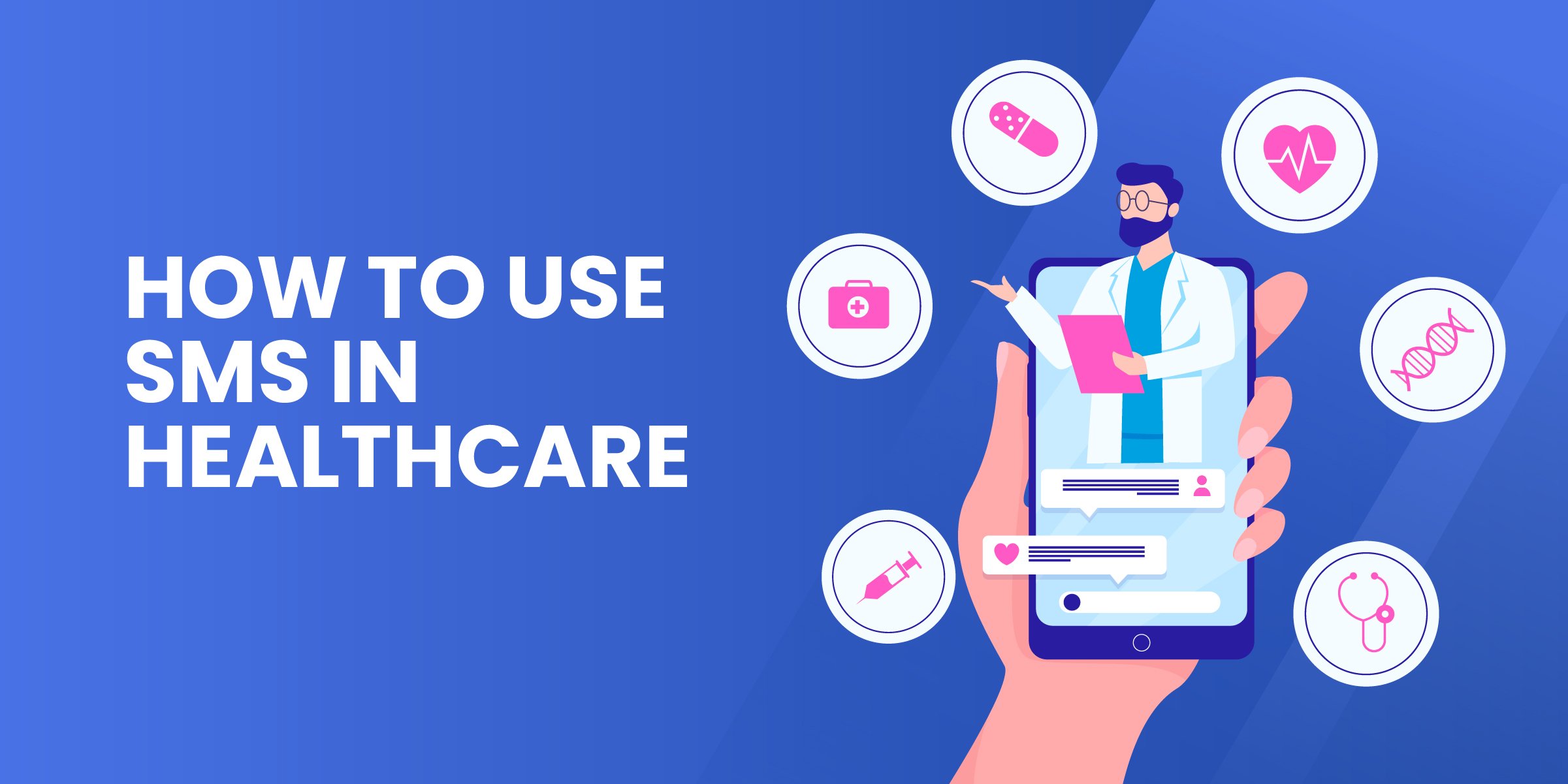

So how exactly is SMS used in healthcare?
Let’s look at some of the most popular applications for medical SMS.
- Staff Scheduling– By setting up a healthcare SMS software with staff scheduling, it’s easy to notify employees of their shift start and end times, track attendance, and communicate with staff.
- Aftercare– Due to many folks having some degree of medical anxiety, it’s all too common for patients to immediately forget everything the doctor has told them the minute they walk out the door. Sending aftercare information like medications and recommended aftercare instructions.
- Appointment Reminders– One of the most common uses for medical SMS is appointment reminders. Sending a few as the patient’s appointment gets closer lowers the chance of a no-show and increases the likelihood that patients will show up on time.
- Emergency Alerts– In the event of an emergency, time is critical. Sending emergency SMS alerts to a group of employees or patients can save precious time.
- Healthcare Notices– In the instance of test results coming back, it’s easier (and more likely to be received) to send an SMS to a patient. You can also send a request to patients to schedule a follow-up appointment.
- Prescription Updates– Medical SMS services allow doctors and pharmacies to send updates to patients about their prescriptions, notifying them when a prescription has been sent, when it has been filled, and when it is ready for pickup.
- Promos– Have a promotion going on? Sending patients information about the promo drives awareness.
What to Consider When Texting Patients
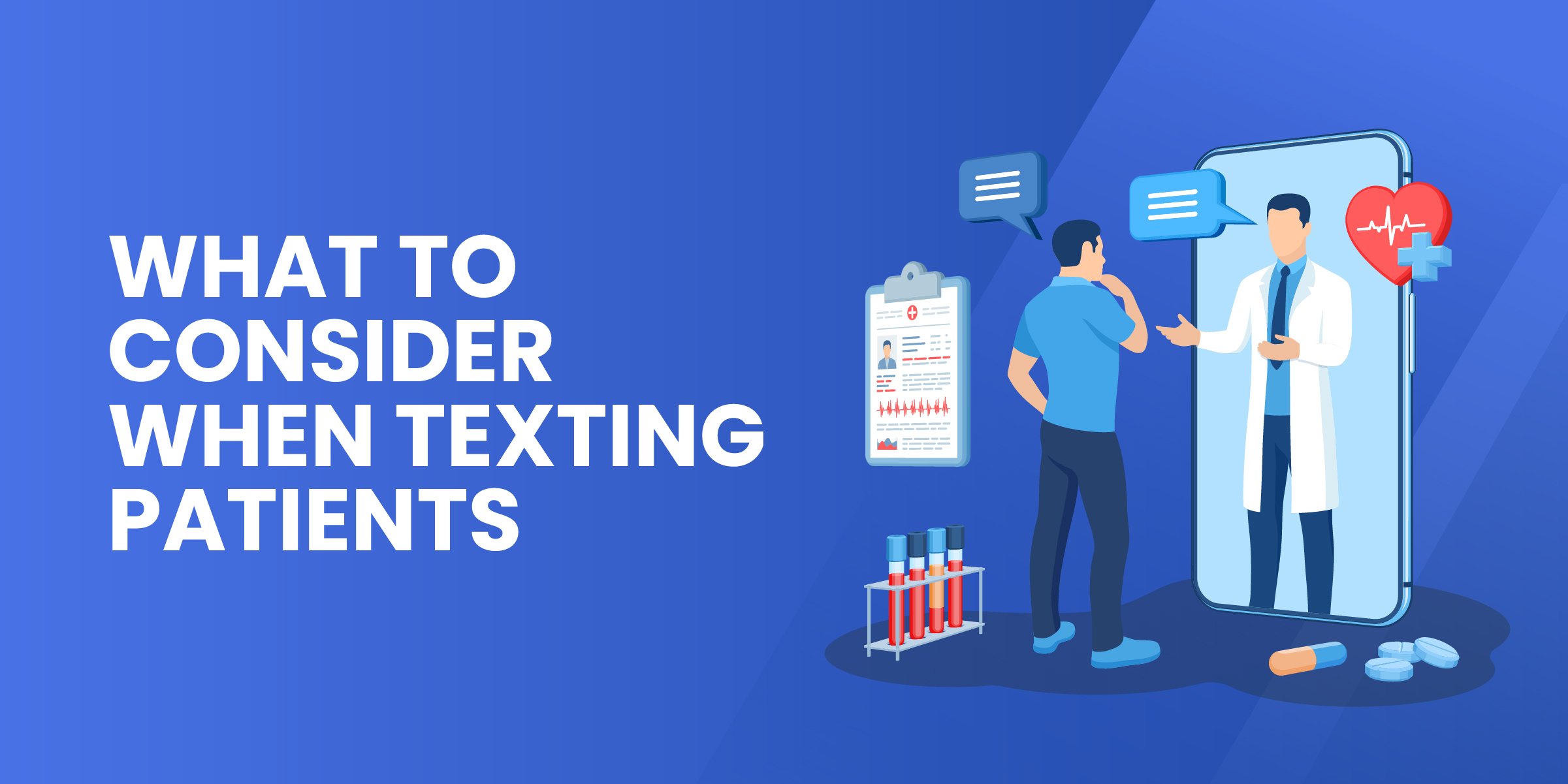

To make the most of medical SMS services and protect your patients and employees, here are a few important things to consider when sending out medical SMS messages.
- HIPAA– Above all else, make sure that your medical SMS system and every SMS you send to patients follows the rules laid out in HIPAA.
- Unique User IDs– Each user (patients and employees included) needs to have a unique ID that makes them identifiable to the system to avoid sending info to the wrong person.
- Automatic Logoff– If a patient forgets to sign out of their medical accounts (for instance, after a telehealth appointment), their information could be left vulnerable. Having an automatic logoff feature includes the security of their information even if they forget to log out manually.
- Encryption– According to HIPAA, all medical SMS messages must be encrypted to ensure that even if they are intercepted through public wifi, the information contained in them is “unreadable, undecipherable and unusable.”
- Audit & Reporting Controls– To be compliant with HIPAA regulations, all SMS software used medically must have controls for auditing and reporting medical information.
- PHI Integrity– Medical SMS software must maintain the integrity of PHI, short for Protected Health Information, on all patients.
- Proof of Identity– Proof of identity is necessary to prove who is receiving personal health information via SMS.
- Data Security– All data must be secure, so ensure that your SMS software will keep patients’ data safe.
- Consent– Patients and employees must give consent and opt-in to receive medical SMS messages.
Best HIPAA-Compliant Text Messaging Software
Interested in setting up a medical SMS system for your practice?
Here are some of the best medical SMS systems that are compliant with HIPAA guidelines.
Also, check out the best marketing agencies for the medical health industry
1. ohMD
Learn MoreSpecializing specifically in medical SMS messaging, OhMD is a great choice for any healthcare practice looking to incorporate SMS into their medical processes.
They offer services tailored to both private practices and hospitals. With this variety, they can give customized solutions for any sector of the medical field.
OhMD also offers every part of electronic and telehealth-related services. This includes not only two-way SMS messaging to exchange messages interactively with patients, but also encrypted video visits, patient calls, automation, and electronic forms and files to cut down on time wasted in the medical office filling out intake forms.
They also offer clinical and team communications to keep all of your staff on the same page and reputation management to handle the PR side of things. Having one cohesive, HIPAA-compliant platform to keep everyone and their data organized and safe.
2. WELL
Learn MoreBy allowing patients to reach out to their medical providers in four different ways, WELL is one of the easiest medical SMS platforms for patients to use.
Being rated #1 by KLAS and customers, as well as winning 2022 Best in KLAS for Patient Outreach, it makes sense that WELL makes the shortlist when it comes to medical SMS software.
One unique feature that sets this medical SMS platform apart is the Chatassist AI that they offer. This AI navigates patient conversations independently, allowing for a streamlined communication process that makes medical assistance possible to increase patient engagement.
They have provided healthcare SMS services for a wide variety of medical services. Ophthalmology, behavioral health, women’s health, and home health providers all use WELL successfully to improve communication between employees and patients.
3. Textedly
Learn MoreYou probably have heard of Textedly before, but you may not know that they do medical SMS, too.
Their special medical SMS service is HIPAA-compliant so you can be sure that all of your messages are sent and received securely.
They also offer a full range of services, covering anything your healthcare practice could need. This includes everything from staff scheduling to appointment reminders and aftercare instructions, healthcare notices, medication updates, and emergency alerts.
Textedly also offers services for collecting reviews via SMS. After their visit, your patient will receive a message asking a few follow-up questions to see what worked and what didn’t. This can help any medical practice improve its processes and care.
4. TigerConnect
Learn MoreIn healthcare, collaboration is important. To get all of your medical team on the same page, use TigerConnect.
TigerConnect focuses on fostering continuous conversation and collaboration between everyone on the healthcare team. But their services go beyond just SMS.
They offer features for easy physician and resident scheduling, alarm management, and event notifications.
Also worth noting are their patient-centric SMS solutions. Reach patients and their families using text or voice messages or secure video, all HIPAA-compliant. These services don’t require patients to install any sort of app on their phones, making access even easier.
5. Zinc
Learn MoreZinc, a product of ServiceMax, is an entirely mobile-centric SMS software for medical services that is completely HIPAA-compliant.
By offering applications for every mobile device including iOS and Androids, Zinc makes it easy to communicate between team members and patients and to store important information right from your cellphone.
Not only does this system make it easier to communicate securely, but it also makes that communication more efficient. By using Zinc, medical providers have seen a 37% reduction in time to service and a 20% increase in employee engagement.
To add even more ease and efficiency, Zinc even offers automated solutions to keep up with engagement without taking valuable time away from employees for simple communications with patients.
More SMS Software for Medical & Healthcare (Non-HIPAA Compliant)
6. SimpleTexting
Learn MoreSimpleTexting’s SMS marketing service offers exactly what its name implies – simple, intuitive, and accessible text messaging features.
Medical practices can create unique profiles for each patient, including a profile photo and any important contact information.
SimpleTexting offers many features that healthcare providers can find useful, including 1:1 conversations with patients and easy solutions to schedule appointment reminders. Encourage response by having patients confirm “Y” or “N” on their appointment times.
It also offers integrations with Mailchimp, allowing users to integrate their contacts from the email service over to SimpleTexting.
- Read our SimpleTexting Review
7. Mobile Text Alerts
Learn MoreWith over a decade of experience in its field and over 20,000 healthcare offices served, Mobile Text Alerts is well-equipped to offer healthcare offices easy SMS solutions.
Customer support and service features include SMS options for reviews, feedback, and surveys, so that you can gauge patients satisfaction with the level of communication they receive, the content, and how comprehensive updates are.
Mobile Text Alerts has an easy-to-navigate dashboard that can be reached via the mobile app available for iOS and Android systems. This makes it easy to reach your patients no matter where you happen to be.
We love Mobile Text Alerts for all of the convenient integrations that they offer. With integrations for Zoom, Shopify, WordPress, Gmail, and more, you can seamlessly keep everything in one place.
- Read our Mobile Text Alerts Review
8. TextMagic
Learn MoreTextMagic offers healthcare services multiple options to keep their offices running smoothly.
Aside from offering a large variety of traditional SMS systems, TextMagic offers single sign-on features for enterprises. Any of your team members can use secure identity provider credentials to log on to your platform safely and manage messaging campaigns.
You can run education campaigns, raising awareness for patients about different diseases.
Healthcare offices can even send patients reminders to pick up and even take their daily medications.
- Read our Text Magic Review
Other Uses for SMS Marketing
Frequently Asked Questions
What is HIPAA compliant SMS?
HIPAA compliant SMS must adhere to the legal requirements of HIPAA including ensuring the security of PHI (protected health information), encrypting messages, and maintaining an audit trail.
Can you text a patient?
You can text a patient but it must be done using HIPAA-compliant software that will encrypt the messages.
Is texting a HIPAA violation?
Sending a regular SMS is a HIPAA violation, but using secure specialized software ensures that your SMS does not violate HIPAA.
Can you text medical information?
If you use the proper software, you can text medical information to patients and employees.














